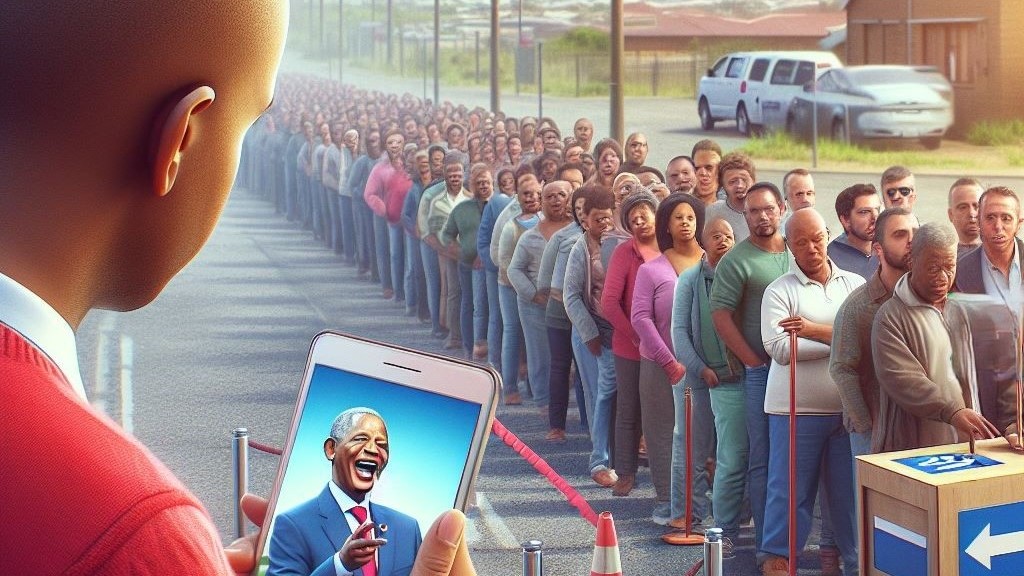Artifical Intelligence
Now it’s AI versus elections
South Africa is protecting key physical locations ahead of the 2024 elections, but the digital space is under threat, writes ARTHUR GOLDSTUCK.
As South Africa prepares for elections on 29 May, security is being ramped up around key physical locations, but the digital space is left unprotected, at least by the State.
“As the government, we want to issue a stern warning to anyone with intentions to disrupt the elections that the law enforcement officers will deal with them decisively and will put them behind bars,” Minister of Defence and Military Veterans Thandi Modise said last Sunday.
However, nothing was said about cybersecurity, despite a global rise in the use of AI to manipulate elections.
According to global cybersecurity firm Check Point Software, AI-generated deepfakes and fabricated materials “are increasingly being employed by candidates, political parties, and even foreign actors to deceive voters and advance their agendas”. Check Point says these sophisticated techniques blur the lines between fact and fiction, making it challenging for voters to discern genuine information from manipulated content.
Sergey Shykevich, threat intelligence group manager at the firm, warned last week: “Amid the political frenzy, South Africans must remain vigilant against the onslaught of disinformation campaigns by criminals leveraging AI technologies and cybercrime.”
Check Point investigations have revealed AI cloning being used by candidates for self-promotion and to attack and defame political opponents, as well as by foreign nation-state actors to defame specific candidates.
“Our research into the use of AI in election campaigns around the globe highlights a chilling evolution of digital warfare against democratic processes,” says Shykevich. “The sophistication and accessibility of AI technologies have reached a point where they can easily be weaponised to influence the democratic process.”
It’s not all bad news. From Argentina to Indonesia, says Check Point, these tools have been used to bypass restrictions on free speech, providing faces and voices to imprisoned or muted political leaders. However, this often results in misleading applications, such as fabricating endorsements from deceased leaders in Indonesia and India or animating the content of leaked emails in Poland.
In the United States, a fake robocall impersonating President Biden urged Democrats not to vote. This prompted the US Federal Communications Commission to outlaw robocalls generated by AI.
In the United Kingdom, more than 100 deepfake paid video advertisements impersonating Prime Minister Rishi Sunak were promoted on Facebook, “proving” he served private business interests.
Check Point advises South Africans to verify the authenticity of information before sharing or believing it, and to stay informed about the latest developments in disinformation tactics.
Abongile Mashele, head of government affairs and public policy at Google, says the company has undertaken a number of steps to support election integrity in South Africa.
On YouTube, human reviewers and machine learning technology combine to detect, review and remove content that violates Google’s policies. All advertisers who run election ads in South Africa must complete an identity verification process and display an in-ad disclosure that clearly shows who paid for the ad.
Most significantly, Google is funding a fact-checking coalition, led by Africa Check, with South African media. It fact-checks claims made by political parties, provides voters with non-partisan information on key issues, and equips the public with skills to identify election misinformation.
“We were the first tech company to require advertisers to disclose when their election ads include synthetic content that inauthentically depicts real or realistic-looking people or events,” says Mashele. “This includes ads that were created with the use of AI. Our ads policies already prohibit the use of manipulated media to mislead people, like deep fakes or doctored content.”
Even video-sharing social platform TikTok is getting in on the election protection act. It has created an In-App Election Centre, which it describes as “a dedicated space for verified voting information”, in partnership with the Independent Electoral Commission of South Africa and civil society organisations.
* Arthur Goldstuck is founder of World Wide Worx, editor-in-chief of Gadget.co.za. Follow him on Twitter and Instagram on @art2gee.


















